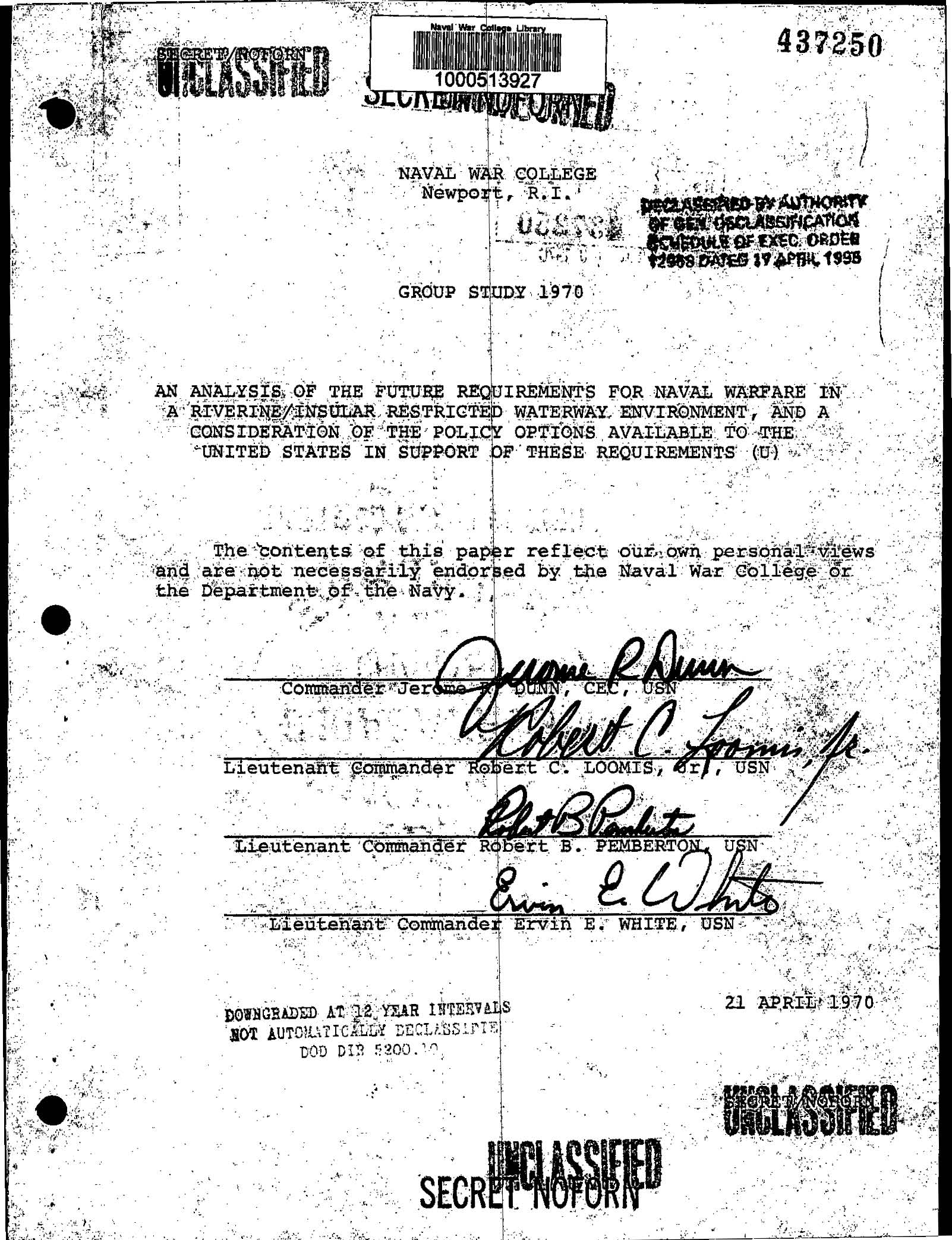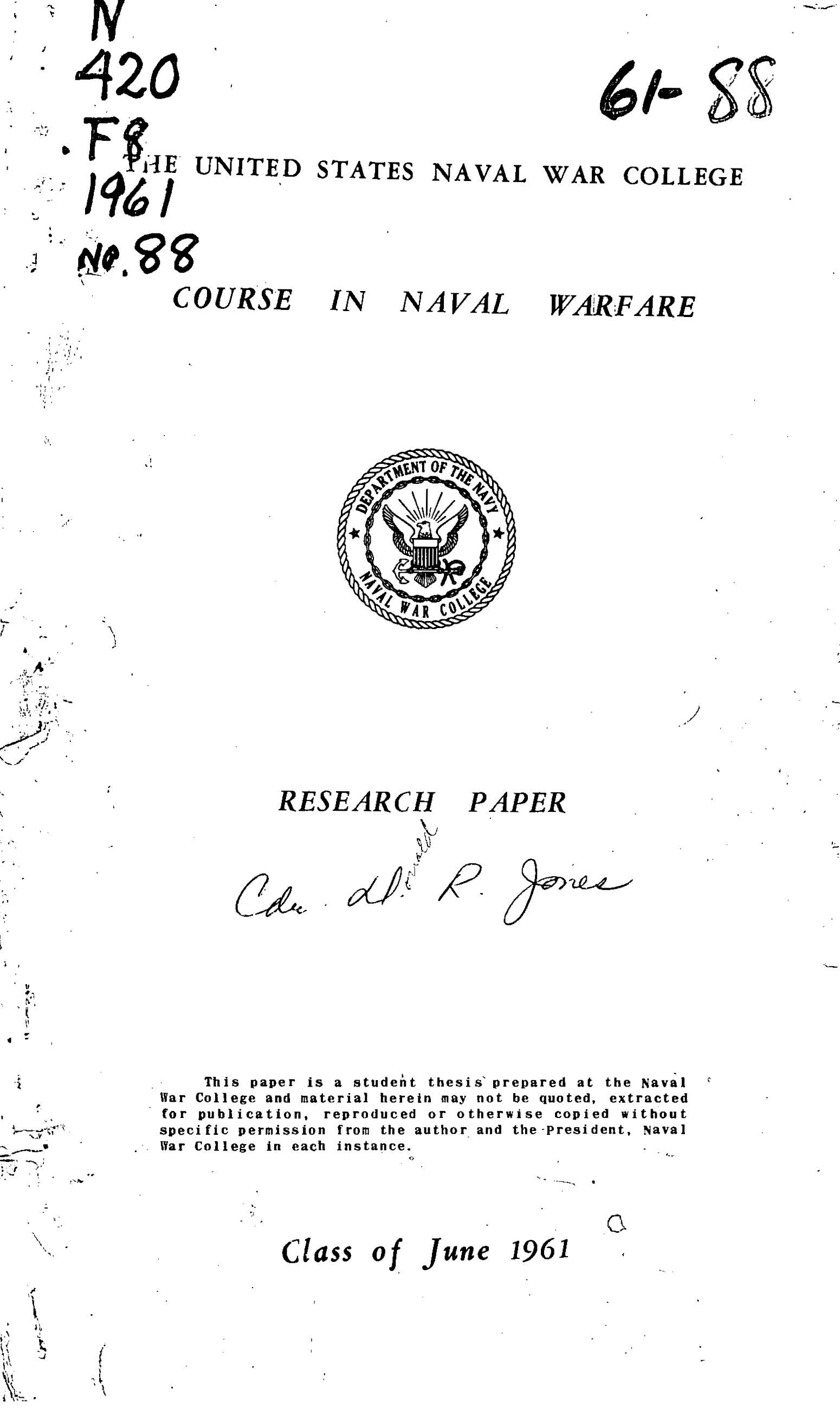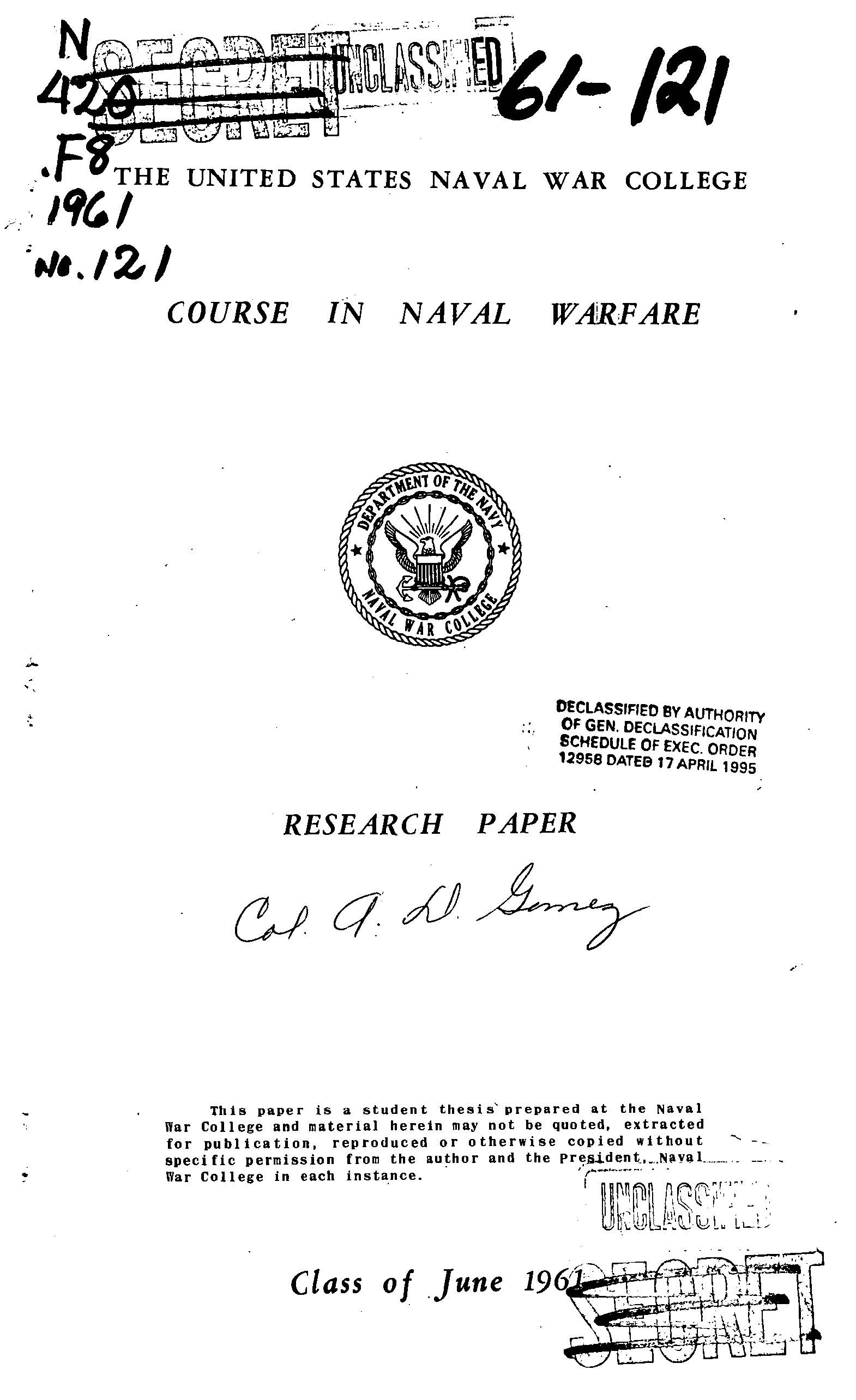Showing Records: 1 - 6 of 6

Analysis of the future requirements for naval warfare in a riverine/ insular restricted waterway environment, and a consideration of the policy options available to the United States in support of these requirements, by Jerome R. Dunn, Robert C. Loomis, Jr., Robert B. Pemberton, and Ervin E. White
Dunn, Jerome R., Robert C. Loomis, Jr., Robert B. Pemberton, and Ervin E. White: An analysis of the future requirements for naval warfare in a riverine/ insular restricted waterway environment, and a consideration of the policy options available to the United States in support of these requirements, 1970 Apr 21
A group research study paper by Commander Jerome R. Dunn, USN; Lieutenant Commander Robert C. Loomis, Jr., USN; Lieutenant Commander Robert B. Pemberton, USN; and Lieutenant Commander Ervine E. White, USN. This paper studied the potential requirement for continuing naval warfare activity on international waterways; U.S. security interests, commitments, general force planning and military assistance policy trends relating to areas of high susceptibility to insurgency on internal waterways; an historical assessment of U.S. and contemporary experiences in internal water warfare; and presented U.S. programs and policies for internal water naval operations and recommendations for improvements to the programs.

Exploitation of Inner Space -- Prime Element of National Strategy, by Donald R. Jones
Gomez, Andre D.: Implications of Space on Naval Strategy, 1961 Mar 1
Student paper by Col. A. D. Gomez, USMC for the course in naval warfare at the Naval War College. This paper deals with the implications of space on naval strategy and represents an attempt to analyze potential military effects of space systems on naval strategy and operations with emphasis on different types of satellites.

Implications of Space on Naval Strategy, by Andre D. Gomez
Jones, Donald R.: The Exploitation of Inner Space -- Prime Element of National Strategy, 1961 Mar 1
A student paper by CDR D. R Jones for the course in naval warfare at the Naval War College in which he attempted to establish that optimum knowledge of the oceans of the world is a prime and requisite element of sea power and proposed that this knowledge of inner space (i.e., the aqueous envelope of the earth extending from the surface of the ocean to its floor) is necessary for both national defense purposes and to ensure the exploitation of the oceans' vast food, mineral and energy resources. The author suggested that scientific and technological activities in oceanography should be broadened and increased to not only strengthen the U.S. military posture but also to satisfy the needs of the burgeoning populations of the world.
